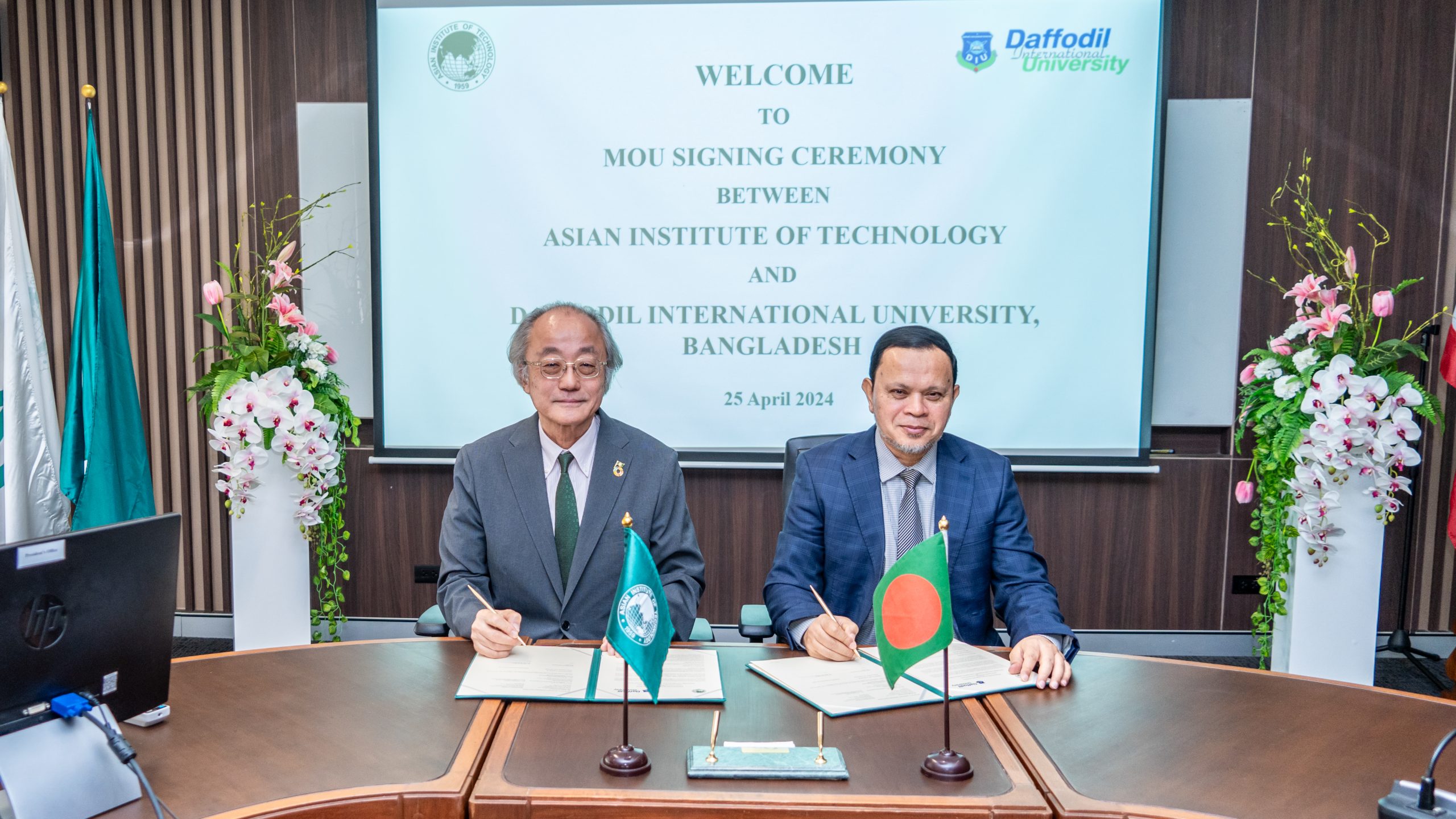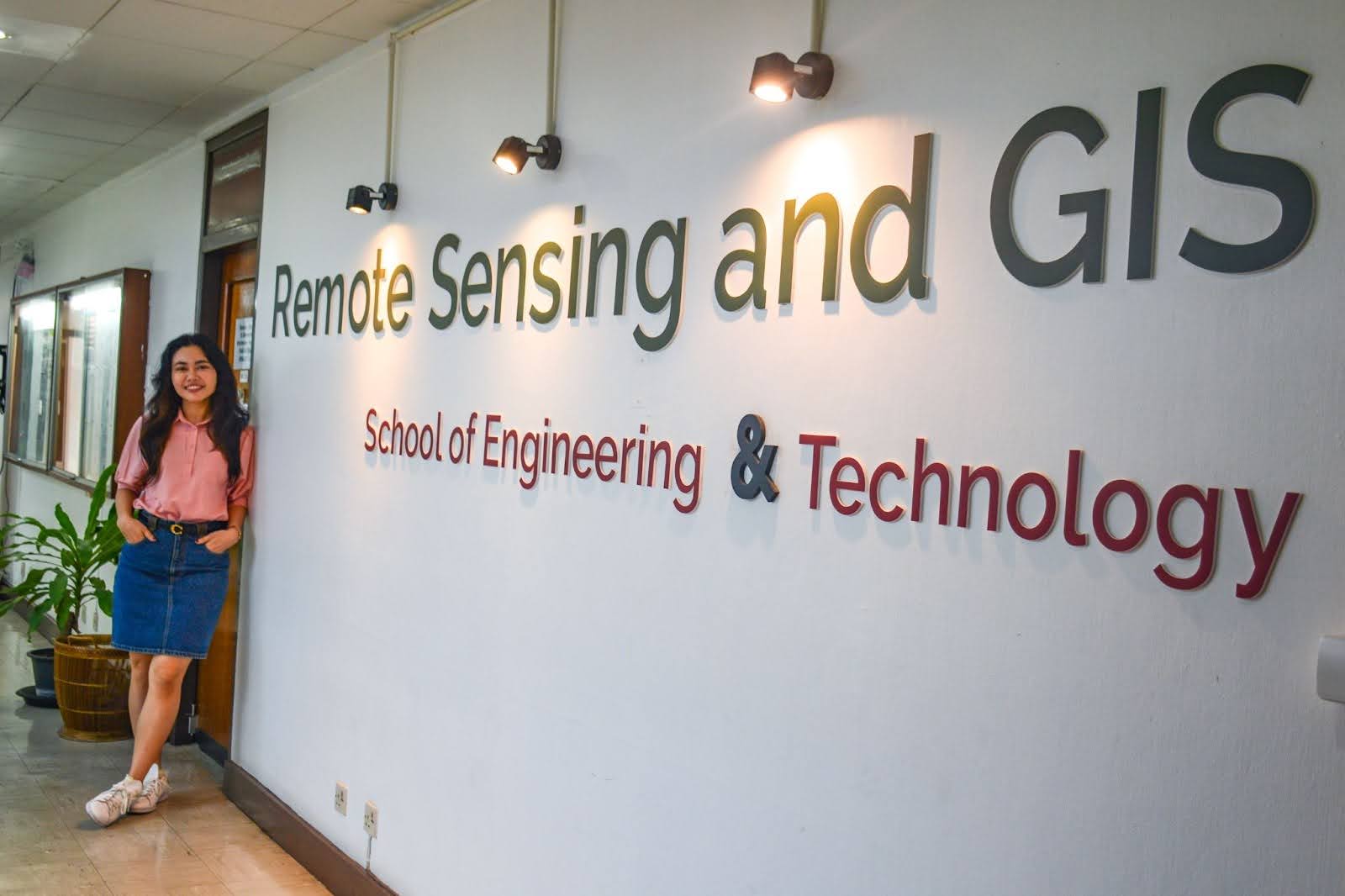By AIT Public Affairs
26 January 2024: Thailand is facing a worsening air pollution crisis, a global concern affecting public health, industry, and urban growth. High levels of PM2.5 pollutants in Bangkok underscore the urgent need for local, regional, and global action to address air quality issues. The World Health Organization (WHO) sets guidelines for air quality, particularly focusing on PM2.5 concentrations, yet many areas struggle to meet these guidelines due to rapid urbanization and industrial expansion.

Thailand faces challenges akin to other regional nations, with urban congestion, industrial growth, and traditional farming practices like crop burning contributing to declining air quality. Bangkok, in particular, suffers from severe pollution, with industrial processes, traffic emissions, and seasonal agricultural burning as primary sources. The dry season exacerbates pollution levels, posing serious health risks, especially for vulnerable groups such as children and the elderly.
The Thai government has initiative actions aiming to reduce emissions from major pollution sources for enhanced air quality management. Technological solutions, like the “Air4Thai” mobile application, provide real-time air quality and forecasting data, empowering individuals to make informed decisions about their health and pollution exposure.
In 2023, Chiang Mai ranked as the world’s most polluted city, primarily due to forest fires and agricultural burning, compounded by contributions from neighboring countries. Innovative efforts, such as incorporating air pollution education into early student curricula, focus on raising awareness and fostering proactive responses among the younger generation. Collaborative endeavors with international experts offer promising solutions to combat air pollution.
AIT collaborates with the Thai government and international organizations to tackle air pollution issues. In Thailand, AIT has conducted research for the Bangkok Metropolitan Administration and Pollution Control Department, identifying pollution sources and mitigation options. At the ASEAN level, AIT has worked with PCD and the United Nations Environment Programme to study the costs of not implementing air pollution policies and conducts cost-benefit analyses for clean fuels and engines in the Maldives with support from the Climate and Clean Air Coalition. AIT’s efforts aim to address air pollution, a critical issue causing approximately seven million deaths globally each year.
Dr. Ekbordin Winijkul, an air pollution expert and Associate Professor at the Environmental Engineering Management, School of Environment, Resources and Development, Asian Institute of Technology (AIT), emphasizes the impact of air pollution, especially PM2.5, stressing the need for immediate action.
He said, “Addressing the urgent global challenge of transboundary air pollution requires the convergence of technology, public awareness, and international collaboration. Academic institutions, such as AIT, play a pivotal role in providing the research and data necessary to formulate science-based policies. Cutting-edge technologies, including advanced air quality monitoring systems, emission inventory development, and air quality modeling, are essential tools in understanding and mitigating air pollution in the region. Collaboration among different countries fosters a collective effort to tackle this shared problem, emphasizing the interconnectedness of our region. Moreover, raising public awareness of air pollution is crucial for catalyzing significant progress towards achieving cleaner air and clear skies in the region.”

Various collaborative initiatives are underway, with officials being trained to address the crisis. The Royal Thai Embassy in Yangon, Myanmar, and Thailand’s Pollution Control Department organized a technical workshop and study visit on Transboundary Haze Pollution Management between Thailand and Myanmar in January 2024, involving AIT and other collaborators. This initiative follows discussions among Laos PDR, Myanmar, and Thailand in April 2023, where collaborative approaches were explored to tackle transboundary haze problems. Thailand pledged to share knowledge and experiences with Myanmar, focusing on satellite technology for fire hotspot monitoring, land use benefits, and highland agricultural management under the “CLEAR Sky Strategy” of the Thai Government. The workshop included 20 Myanmar officials working on Haze Pollution Management along the Thailand-Myanmar border and 10 Thai officials. During the workshop, the participants stayed on AIT campus and engaged in lectures and discussions led by experts from AIT and other organizations around the country.

Despite efforts, air pollution remains a challenge in Thailand. Continuous monitoring, strict enforcement of environmental regulations, and ongoing public education are necessary. Moreover, it’s crucial to adopt sustainable urban and industrial practices prioritizing environmental health and well-being.









